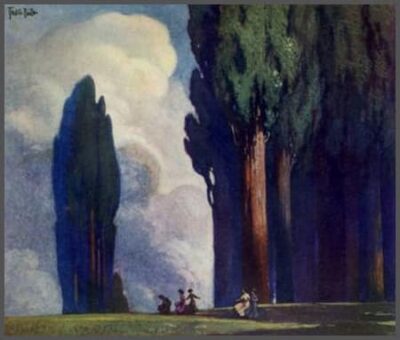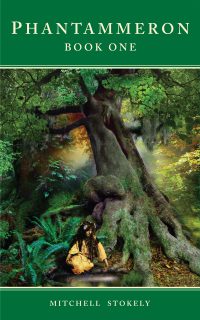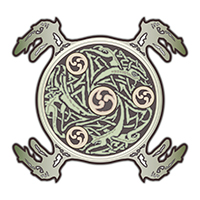In Book One of the Phantammeron, chapter 10, there is a scene where the young girl Ana arrives upon a hill riding the unicorn called Phanyan. That fairy tale scene ends in the middle of the Forest of Twilight upon a high hill. She then shields her eyes as she witnesses the spectral beauty of the One Tree as it shines down into the Gardens of Abrea.

The beauty of that scene and the introduction of that place was a central point in the first book that I really enjoyed writing, especially after so much darkness in the earlier chapters of the book. The point of that scene and Ana coming to that paradise was to share my views of the primacy of childhood, its infinite wonder and eternal innocence. But it was also a reflection on Mankind’s eternal search for an earthly paradise, one not wholly Biblical but associated with the paradise that lives in us and in our minds.
Choosing to use a young girl as a protagonist wasn’t designed to repeat the common modern character arc, but simply a reflection on the innocent child that lives in us all; my own innocent child. We all have a young child inside us….in our psychology, just as we have a God and a Creator, a patriarch, a perfect marriage partner, our parents, babies, and even primitive animal archetypes. Ana to me was a way to express the deep desire for innocence I once felt growing up as a child and the wonder and adventure my mother always allowed me to have growing up.
Ana in that sense is rediscovering her innocence and her place in a perfect, free, imaginative world; the “unmarred world” we all desire and seek as adults despite the overwhelming complexity of the modern one we live in. It’s something the modern world continues to destroy, both through greed but as a result of our own survival instincts. We cannot let go of our need to dominate Nature and each other. We cannot let go of our lifelong quest for money, love, and power.
Living this fallen modern life we destroy a piece of our innocence, our inner beauty and wonder, and our ability to accept our more loving nature. But know that the Free Child still lies buried in our souls and psyche, and seeks that perfect paradise that still lives inside us. And so that part of the Phantammeron was an ode to that desire – the longing for that innocent child that still calls us.
– the Author



